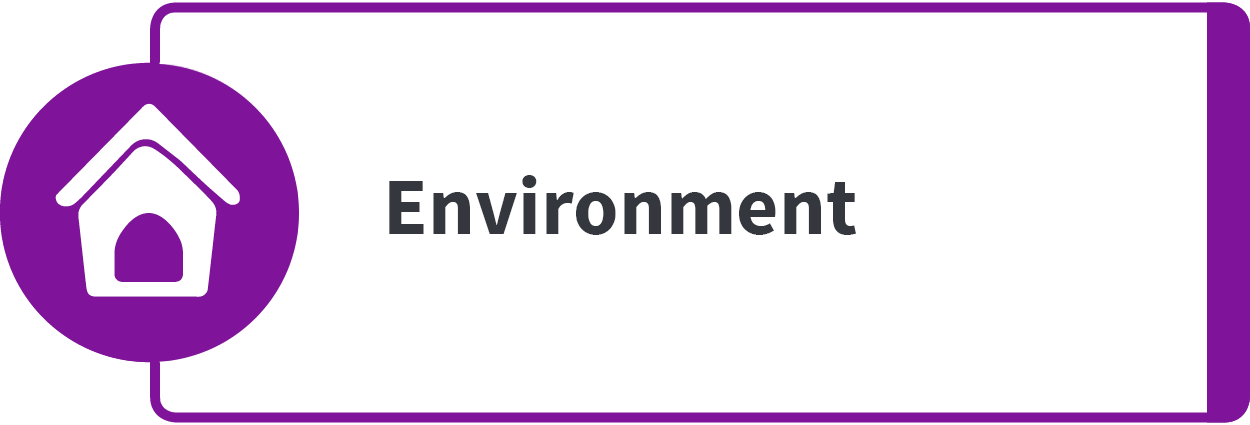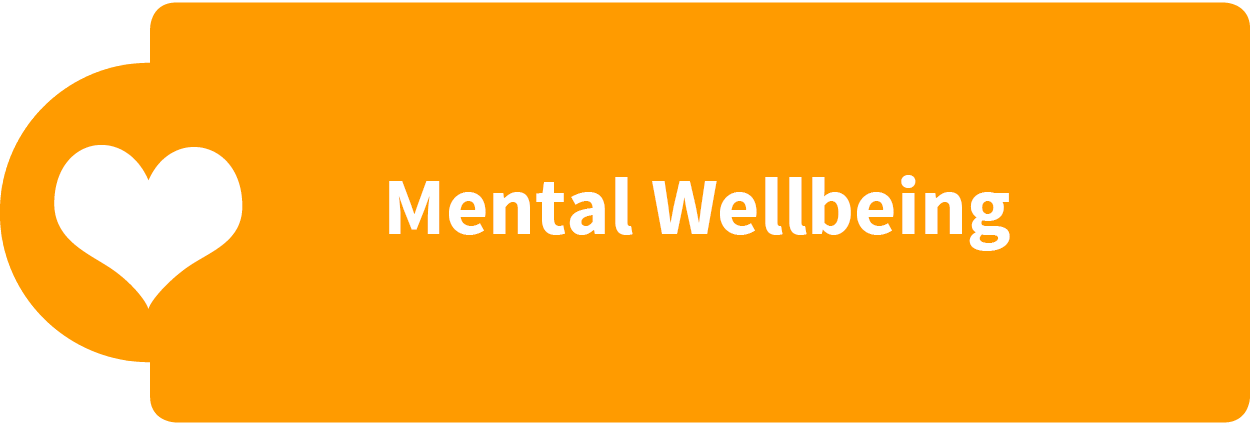Mental Wellbeing
All goats deserve to be happy. Loving your goats and learning to understand their needs will help you identify the things you must do to give them positive experiences and prevent them from feeling worried, upset, frightened and stressed.
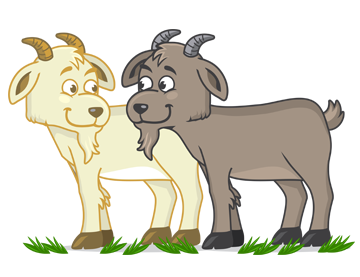
Did you know that there is a special law protecting animals?
This law is called the Animal Welfare Act. The Animal Welfare Act outlines how people must take care of and act towards animals in New Zealand. The Ministry for Primary Industries (MPI), the Police and SPCA work together to make sure people in New Zealand follow these laws.
Under the Animal Welfare Act, all animal guardians (owners) are responsible for making sure the welfare needs of animals in their care are met. Learning about the Five Domains helps us to understand these welfare needs and how we can make sure we provide these. One of the Five Domains is Mental Wellbeing. In this section you will learn about this domain and how you can make sure your goats have positive experiences and are receiving the love, understanding and companionship they need for their mental wellbeing.

















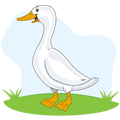
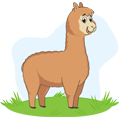
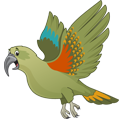

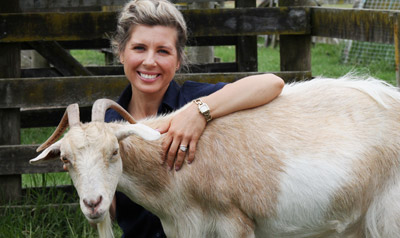 You will need to be very careful when handling your goat. It is best to start handling your goat from a young age, as this will help the goat get used to you and used to being touched. It will also increase the bond between you and your goat.
You will need to be very careful when handling your goat. It is best to start handling your goat from a young age, as this will help the goat get used to you and used to being touched. It will also increase the bond between you and your goat.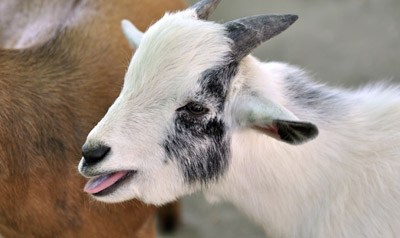 Goats can make a very unusual sound called a bleat. When you first hear this, you might be a bit surprised! A bleat can be quite loud and sounds a bit like a human crying! If you notice your goat constantly bleating, it could mean your goat is stressed and unhappy.
Goats can make a very unusual sound called a bleat. When you first hear this, you might be a bit surprised! A bleat can be quite loud and sounds a bit like a human crying! If you notice your goat constantly bleating, it could mean your goat is stressed and unhappy.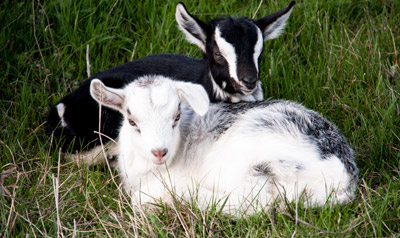 Your goat will need some time to adjust to meeting another goat or another animal. If you introduce your goat to another goat, make sure to do so very slowly.
Your goat will need some time to adjust to meeting another goat or another animal. If you introduce your goat to another goat, make sure to do so very slowly.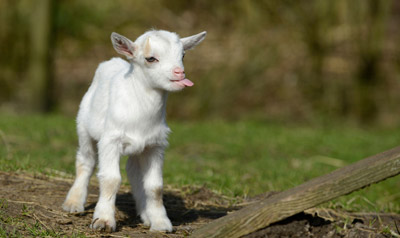 Goats are such curious animals so sometimes they can accidentally get themselves into trouble! Goats are very clever and are often very good at finding ways to get through fences or opening gates and doors. Goats have a natural instinct to explore - sometimes they can escape and wander.
Goats are such curious animals so sometimes they can accidentally get themselves into trouble! Goats are very clever and are often very good at finding ways to get through fences or opening gates and doors. Goats have a natural instinct to explore - sometimes they can escape and wander.


